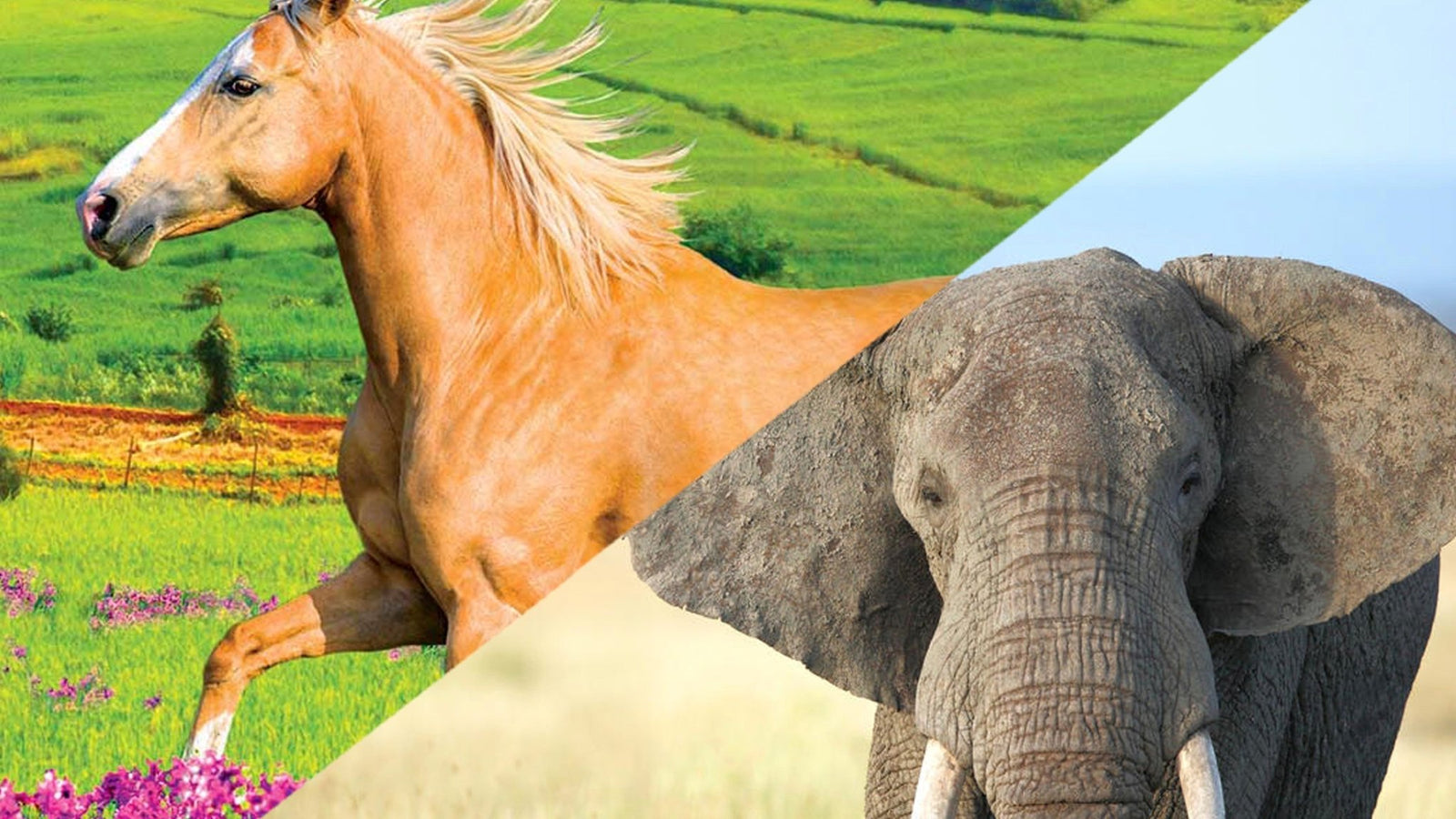Industrial hemp CBD oils and extracts have steadily grown in social visibility and general popularity of late as conscientious pet owners seek to learn more about and institute alternative forms of nutritional supplementation into their animals' diet. Given the relatively large therapeutic window intrinsic to cannabinoids, namely cannabidiol (CBD) when most people refer to hemp derivatives, the usage in larger captive species such as horses and pachyderms is seeing mainstream press! Yes we’re talking about elephants!
CNN in 2020 reported on an ongoing trial being conducted where CBD is being orally administered to elephants in captivity at a zoo in Poland to aid in alleviating some perceivable recurrent anxiety. When the matriarch of the elephant herd had recently died at the zoo that March, handlers noticed that many in the herd were seemingly having difficulty coping with the leader of the herd's death. The handlers and zoologists are openly optimistic about the potential benefits hemp supplements can bestow towards getting these elephant’s physiological balance back on track. So far, the CBD being added into the elephant’s food or directly by mouth is still early in testing, but preliminary findings show promise, say investigators. If the trial continues with positive results investigators can see about the potential use in other species with similar symptomatic pathologies.
Establishing safe and effective dosing guidelines for large breeds or varying species of animal is mostly foreign ground for hemp products, but recently researchers in the Texas A&M University System began trialing CBD usage in horses focusing on its anxiolytic and anti-arthritic properties. More and more horse owners are interested in the potential benefits that CBD oil can possibly offer with little to no side effects. Dr. Kimberly Guay is the head of research at Tarleton State University’s Equine Center and is looking into this with a unique study evaluating the safety and efficacy of CBD and it mechanism of action (MOA) in mediating inflammation, stress, and stereotypical negative behaviors in horses by giving participant animals varying dosage forms either administered as an infused oil or in pellet form. Preliminary results are promising, but there is still a considerable amount of research left to provide a full safety profile with predictable, reproducible, dose response curves.
CBD's analgesic properties can be beneficial for large animals experiencing pain, whether due to injury, arthritis, or other musculoskeletal issues. Proper dosing may help manage pain and improve overall comfort. Large animals, especially those in stressful environments or during certain activities, may benefit from CBD's anxiolytic effects. Appropriate dosing can help reduce anxiety and improve the animal's well-being. CBD's anti-inflammatory properties are well-documented. Proper dosing may contribute to controlling inflammation, aiding in the management of conditions such as arthritis and promoting joint health. Large animals, particularly those prone to digestive issues, may find relief through CBD dosing. The anti-nausea and anti-inflammatory effects could contribute to a healthier digestive system. Full spectrum CBD's interaction with the endocannabinoid system may support immune system function. Proper dosing could play a role in enhancing the animal's ability to resist infections.
Veterinarians play a crucial role in determining the most suitable CBD dosage for individual animals. They consider the animal's health history, current medications, and specific health conditions to tailor a dosing plan. Continuous monitoring of the animal's response to full spectrum CBD is essential. Veterinarians may adjust dosages based on changes in the animal's condition or any observed side effects. Veterinarians can provide guidance on selecting high-quality CBD products specifically formulated for animals. Third-party testing and transparency in product labeling are crucial considerations.
Navigating full spectrum CBD dosing for large animals requires a thoughtful and individualized approach. As CBD gains recognition as a potential tool for enhancing animal well-being, responsible guardians must collaborate closely with veterinarians. The evolving landscape of CBD research in veterinary medicine emphasizes the need for informed decision-making, ensuring the safety and efficacy of CBD dosing for our cherished large animal companions. In the quest for holistic health solutions, proper dosing of full spectrum CBD emerges as a promising avenue, promoting the vitality and happiness of these magnificent creatures.

